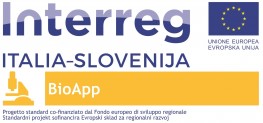BioCannDo project
Project concluded

The Bioeconomy Awareness and Discourse Project (BioCannDo) aimed to raise awareness and acceptance of the broad public towards the bioeconomy and bio-based products through a strategic, stakeholder-driven information campaign and education.
Convincing people that the bio-based economy offers something desirable, with new products, functionalities and applications for their daily life, that provide answers to societal concerns (e.g. climate change), requires neutral and science-based information. BioCannDo presented such information in a way that is easy to understand for the broader public. It provided various means for feedback, interaction and encouraged engagement in a discourse on common questions and concerns.
Collaborating with bio-based stakeholder networks and communities at EU, regional and national level, BioCannDo provided information, educational materials and key communication messages through such channels as a community of related projects and educational partners and an Infohub which combines different means of online communication (i.e. social media, blogs, videos, journalistic articles).
BioCannDo built on the legacy of previous projects (i.e. by using their networks, or social media accounts), existing material developed by them and collected, connected, aggregated and reformulated content from different actors and resources. It generated new content addressing the most urgent gaps in information and education. Such dual approach helps to maximise synergies and increase impact of both existing and new material.
The developed content and key communication messages was assessed and tested by stakeholders and target users through focus groups and a market survey. Findings were used in feedback loops to adapt the content and messages.
Contacts:
Martin Behrens, Fachagentur Nachwachsende Rohstoffe e.V. (FNR): m.behrens@fnr.de
John Vos, BTG Biomass Technology Group BV: vos@btgworld.com







